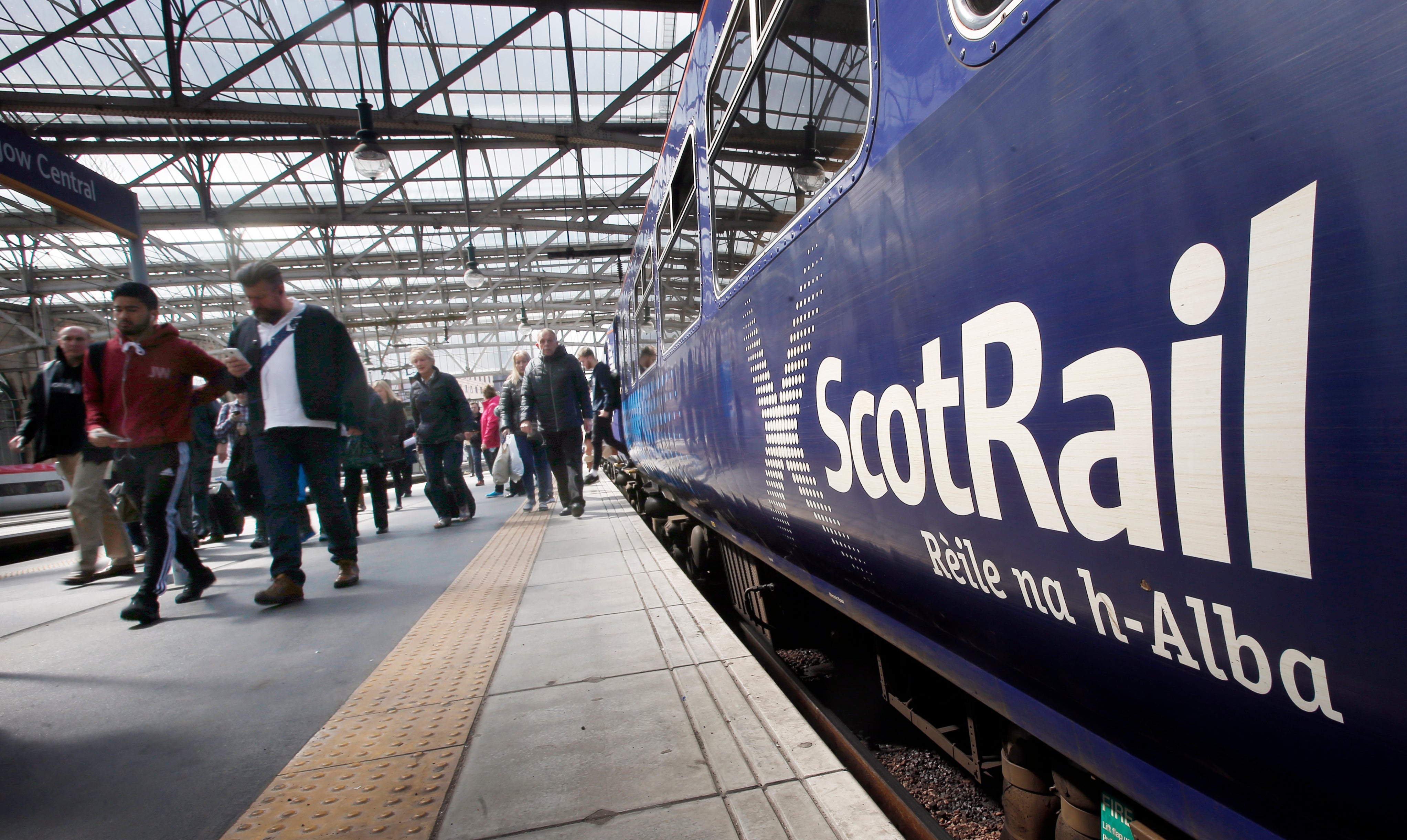Rail fare increases have far outstripped petrol pump rises, says union
Analysis has shown that rail fares have increased by a third in a decade while petrol has increased by just 8.6% in the same period.

Commuters have seen rail ticket costs shoot up by more than a third in the past decade, new analysis shows, far outstripping the price of filling up a car.
On Monday, Scottish peak and off-peak regulated fares are to go up by another 3.8%, with peak prices rocketing by 38% since the start of 2012.
Meanwhile, the price of petrol has gone up by only 8.6% during the same period, the RMT said.
Mike Lynch, the union’s general secretary, said: “We already have a cost-of-living crisis and now there is a climate cost to latest Scottish rail fare hikes which will deter people from using rail, especially when we know the price of using rail has risen four times more quickly than the cost of petrol in the last decade.”
The latest rise comes ahead of ScotRail’s proposed closures of three ticket offices: Cartsdyke, Clydebank and Woodhall, and the reduction in opening hours of more than 100 others across the network.
“Rising fares, fewer services and cuts to ticket offices and safety critical rail infrastructure means ScotRail passengers will be paying more for less,” Mr Lynch said.
“On the one hand, the Scottish Government has said it wants to reduce the distances travelled by car for a healthier, fairer and greener Scotland yet, at the same time, it is increasing rail fares during a cost-of-living crisis and presiding over proposals to reduce ticket office hours by a third, slash services by more than 10% and significantly cut funding for rail infrastructure.
“If the Scottish Government is serious about fighting climate change then it needs to scrap these cuts and instead invest in creating an affordable, accessible and properly staffed rail network that enables people to ditch the car in favour of the low carbon railway.”
A Transport Scotland spokesperson said they “know that any increase in fares is unwelcome for passengers, however, the changes we are implementing this year are essential to our wider recovery plans”.
“We know that there is much work to be done in encouraging people back to rail if we are to achieve our net zero targets.
“That is why we have instructed ScotRail to identify ways to encourage increased demand at the right time, in the right place, as we continue to recover from the pandemic,” the spokesperson said.
“Work also continues on our Fair Fares review, looking at the range of discounts and concessionary schemes that are available on all modes including rail, bus and ferry and informing the development of a sustainable and integrated approach to future public transport fares.”
The latest rise is the second steepest since 2012, when fares were put up by 6%.
Bookmark popover
Removed from bookmarks